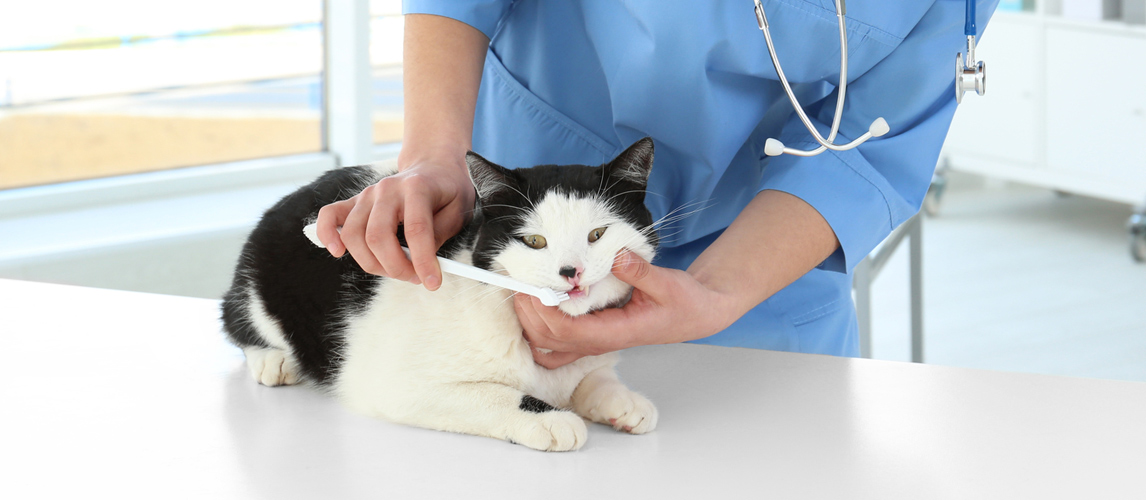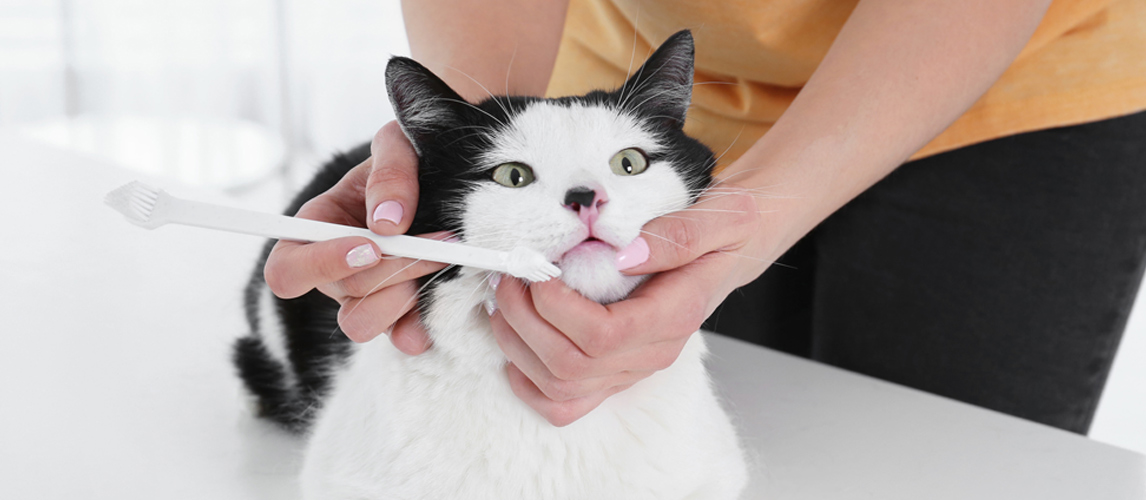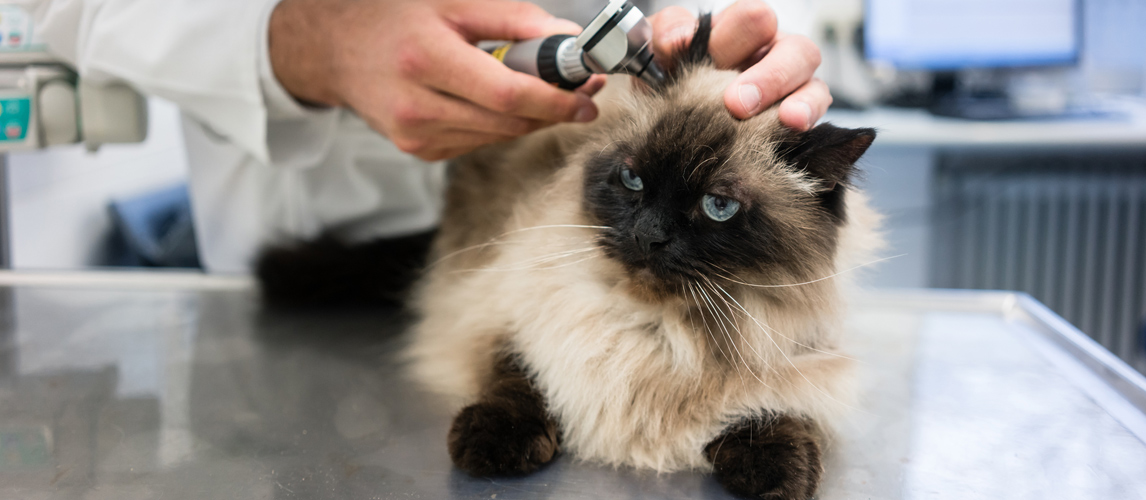As humans, we brush our teeth at least once every day, typically after we get up. Many of us brush before going to bed as well. Some of us even brush a few times through the day. All of this is done with an intent to keep our teeth clean and free of germs.
Like humans, cats’ teeth also have to be brushed regularly. In fact, dental care is as important for cats as human beings to ensure that they live a long and healthy life.
Here are some questions about brushing your cat’s teeth that we hope will help you maintain good dental and oral hygiene for your cat.
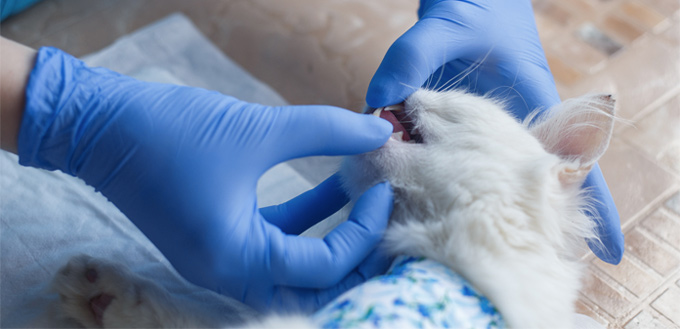
What Should You Use to Brush Your Cat’s Teeth?
Before you begin a brushing routine for your cat, make sure you have the following things ready.
- Cat toothbrush
Like humans, cats also need a good quality toothbrush and toothpaste. But, since their teeth formation is much different from humans, the toothbrush we use will not work for them. Instead, buy a cat toothbrush, preferably with soft bristles, so it doesn’t hurt the cat’s gums while your brush.
- Cat toothpaste
Besides toothbrush, use a cat toothpaste made from a reputed brand. Again, never use the toothpaste that we use for cats because their oral makeup is very different from ours. They need a specialized toothpaste that will remove all the germs and bacteria that forms in their mouth. In fact, the toothpaste will thoroughly even clean their teeth and will prevent dental problems later on. It can also fight many germs that cause plaque build-up and other conditions that could come from poor oral hygiene.
The best part about these specialized kinds of toothpaste is it is flavored in feline-friendly flavors like poultry. This way, the resistance from your cat for the brushing routine will be greatly reduced. In fact, your cat might enjoy these flavors and will even look forward to it.
Whatever you do, make it a point to avoid human toothpaste, baking soda or salt as a substitute for cat toothpaste, as all this could harm your cat if swallowed. If you ever run out of it, simply skip brushing as this is a better alternative than using anything else.
Related Post: Best Cat Toothpaste
Can You Do It at Home?
Yes, you can do it at home. You don’t have to take your cat to the animal clinic every time you want to brush its teeth. With the right toothbrush and toothpaste, you can clean your cat’s teeth at home.
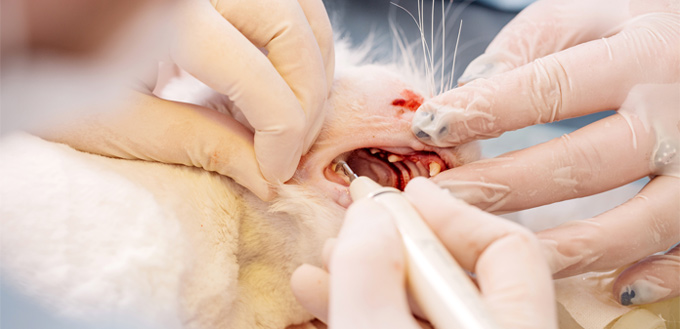
Tips and Tricks
Here are some tips to follow while brushing your cat’s teeth at home.
- Find a comfortable place for your cat to sit during the brushing routine. It can be your lap, near a tap or just about any other place where your cat feels most comfortable.
- Give your cat a small sample of the toothpaste, so it can process the flavor and eventually get used to it.
- Stick to the same flavor for a few months or until your cat gets comfortable with the brushing routine. Frequent changes in flavors may not be so acceptable for your feline, especially when you’re just starting off.
- Gently lift the lip of your cat, so the teeth and gums are exposed. This will make it easier for you to brush.
- Use gentle strokes to ensure that it doesn’t hurt your cat. Start with the front teeth before moving on to the behind ones. It is best you use a circular motion for brushing as this can bring out the germs and bacteria hidden in the teeth crevices too.
- Clean the outer part of the teeth thoroughly as most pets will not allow you to reach the behind teeth unless of course, your pet thoroughly enjoys this process!
- Keep in mind that the back upper teeth, especially the molars and canines have to be cleaned regularly, as tartar could build up on it quickly. So, cajole or reward your cat, but make sure you clean these teeth.
- Be patient and gentle, especially the first few times, as your cat is sure to resist for this brushing process. In general, animals are not open to changes in their routine and will resist them hard. A lot of it is due to the fear of the unknown. So, if your cat is stubborn and doesn’t allow you to brush the first few times, understand the fear that’s in her mind. Over time, your cat will definitely warm up to this routine.
How Frequently Should You Brush Your Cat’s Teeth?
You should brush your cat’s teeth as frequently as possible. Ideally, every day because tartar tends to form on them just like humans.
That said, your cat may resist it and may not cooperate on all the days. In such a case, aim for at least a few days a week, if not daily.
Should You Clean Your Cat’s Teeth Professionally?
Ideally, you should take your cat to the animal clinic to get it cleaned by professionals, at least once every year. These cleaning sessions also give the vet dentists a chance to look at your cat’s teeth and its overall dental health. This is important because some diseases like gingivitis can lead to organ failure and eventual death, especially if left untreated.
To avoid these complications, you have to clean your cat’s teeth professionally. This may set you back financially because most pet insurance policies do not cover dental hygiene. Nevertheless, it is important even if you clean your cat’s teeth every day. Remember, you’ll never be able to do a thorough and professional job, and this means, the cost is worth the health of your cat.
In short, clean your cat’s teeth, ideally every day, with a good quality cat toothbrush and cat toothpaste. Be gentle and kind and understand your cat’s fears. Allow her to get used to this routine and soon, it will be a bonding time that both you and your cat will look forward to.
Sources:
- How to Brush Your Cat’s Teeth, International Cat Care
- Understanding Oral Care – Cats, American Animal Hospital Association
- Crystal Munguia, Toothbrushing for Dogs and Cats, College of Veterinary Medicine
- Jan Bellows, DVM, Dipl. AVDC, ABVP, Brushing Your Cat’s Teeth, VCA Hospitals
Note: The advice provided in this post is intended for informational purposes and does not constitute medical advice regarding pets. For an accurate diagnosis of your pet's condition, please make an appointment with your vet.


